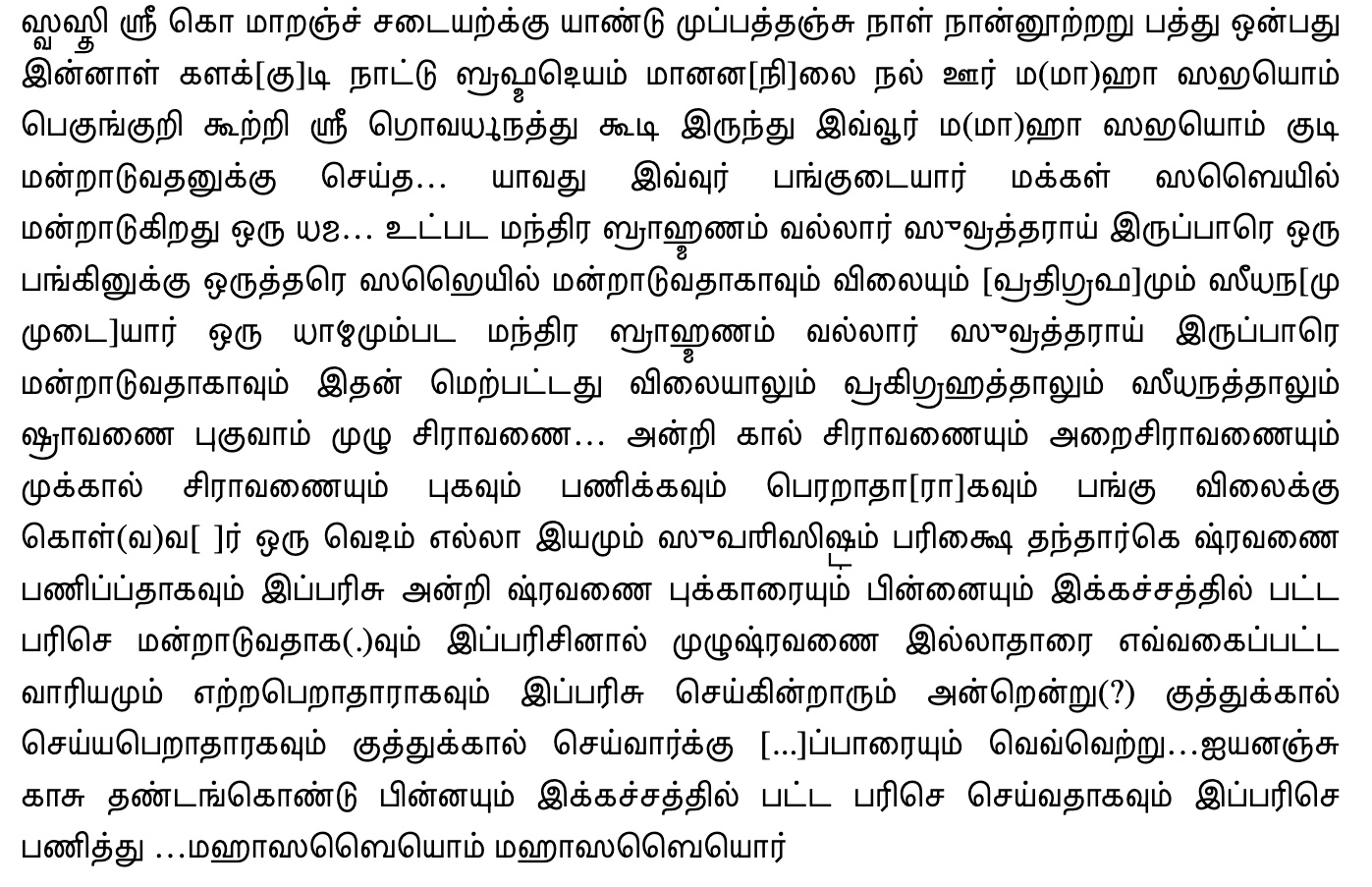12.1. Constitution of Judiciary

12.2. Civil Justice Under the Pāṇdyas
| Number | Name | Description |
|---|---|---|
| 1. | Upagata | Receipts |
| 2. | Ādhi-patra | Mortgage |
| 3. | Kraya-patra | Sale deed |
| 4. | Sthiti-patra | Perpetual conduct |
| 5. | Sandhi-patra | Compact |
| 6. | Viṣuddhi-patra | Purificatory deed. |
| 7. | Vibhāga-patra | Partition deed |
| 8. | Dāna-patra | Gift deed |
| 9. | Dāśa-patra | Enslavement deed |
| 10. | Sīmā-vivāda-patra | Settlement of boundary dispute |
12.3. Vēḷvikkuḍi Grant
12.3.1. Nīḍu Bhukti
- Documents that the descendants were able to produce. In the deed, it is referred to as “Nāḷttāniṉ paḻamai yānatu”. It probably refers to the records in the country accounts that it belonged to the family of Koṟkai Kilāṉs. It is not known whether the original dāna-patra was lost or confiscated. In its absence, the country’s accounts were shown as valid proof.
- The second evidence was the actual enjoyment for a long period (nīḍu-bhukti). The use of the word “bhukti” in the Vēḷvikkuḍi grant clearly indicates its legal implication. As two valid Pramāṇās were produced, the king had no hesitation in reconferring the title to the descendant.
12.4. Daḷavāypuram Plates
12.4.1. The Appeal
12.4.2. In Case of Loss of the Document
12.4.3. Vyavahāra Nirṇaya
12.5. Tenure of Judges
- the judicial assembly (manṟāṭukira sabhaiyōm),
- the tank maintenance committee (ēri vāriya perumakkaḷ).
- the garden maintenance committee (toṭṭa vāriya perumakkaḷ),
- the exponents of śāstras (Bhaṭṭar) and
- the great men (Viśiṣṭa perumakkaḷ).
12.6. Ancient Village Courts

12.7. Ancient Indian View on Bribe
